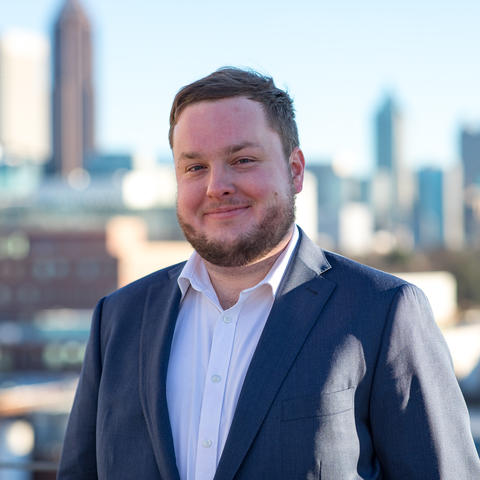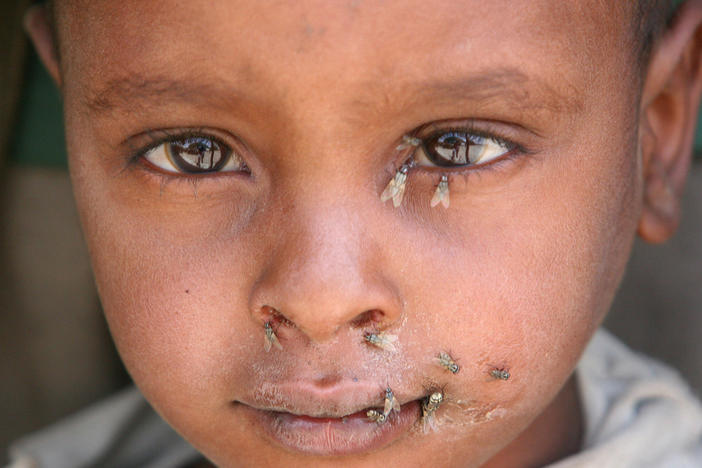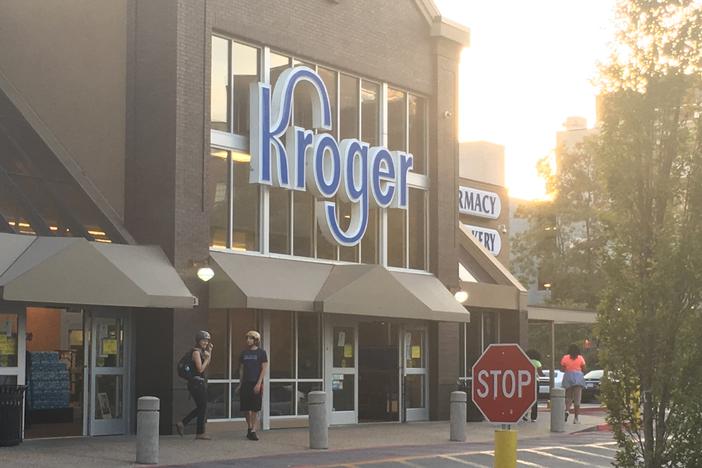Section Branding
Header Content
OutKast In Class: Using Hip-Hop To Teach Social Justice
Primary Content
The Georgia Institute of Technology is known for graduating its students from nationally-ranked programs in science, technology, engineering and math.
A new class taught by visiting professor Dr. Joyce Wilson is using hip-hop to take those students down a more creative pathway than their STEM studies to learn about issues such as race, poverty and cultural identity.
The class is titled “Exploring the Lyrics of OutKast and Trap Music to Explore Politics of Social Justice.”
Dr. Wilson joined me in the studio to explain why she’s teaching trap at Tech.
INTERVIEW HIGHLIGHTS
On using hip-hop to teach social issues at Georgia Tech
I think teaching this at an institute of technology is important. It's an opportunity for them to get technological training but also engage in humanistic perspectives around art and social justice.
These are the next generation of leaders doing things with science, technology, engineering and math. I feel at home because I'm kind of a math nerd myself. But I also feel like I am there to help students develop those social justice capacities. Because they're going to be making decisions about our communities. And what better place to do this than in Atlanta, right in the heart of Atlanta?
On her relationship with the students taking the class
I love them because they're so earnest. They are coming in and trying to understand why they are so attracted to hip-hop music: the music, the sounds, the narratives.
Also, they’re attracted to the ways in which you can get involved in these very autobiographical and autoethnographic stories about people who look like them and what their experience is. Then they’re able to relate that to “Hey, I may not have been involved in that trap but I can understand ‘trapped’ in this way.”
On the students’ group names
They have given them themselves names based on albums and artist names.
Group two is “Two Tang Clan,” which is a riff off of Wu-Tang Clan. And then you have group three, which is “good kid m.A.A.d school,” which is a riff on Kendrick Lamar's “good kid m.A.A.d city” album. Group one is “A Tribe Called Tech,” which is a play on A Tribe Called Quest, and my absolute favorite is “GTLiens,” which is a riff on OutKast’s “ATLiens.”
On why OutKast is the focal point for the class
OutKast represents innovation and a shift in hip-hop culture. They took Atlanta's identity and story and pushed the culture forward. We see the remnants and residual effects of their influence happening in hip-hop to this day.
On the types of verses students analyze in class
"SpottieOttieDopaliscious" was released in 1999 [Ed. note: 1998]. In 1999, some of my students weren't born yet. On this album you have Big Boi’s verse. He’s talking about a girl that he met. She got pregnant. He couldn't get a job at United Parcel Service because his test came back positive for drugs…
https://youtu.be/vXmqauitBkM?t=299
He said “So now look you're trapped.”
And so students pick that verse up and we played with it.
Why the word "trap" is a lens to explore social justice
It's universal.
Everybody can identify with a struggle, whether their struggle is related to race, or being a woman. That struggle is related to being poor universally. We understand struggle, and we understand traps. So in a song like "SpottieOttieDopaliscious" for instance, students identify the violence and the drug tests coming back positive as traps.
On the modern-day definition of trap
The verse from Andre 3000 on Travis Scott’s "the ends" is another reference to a trap. He uses the word trap in the context of describing what it was like being fearful of the man behind the Atlanta Child Murders, Wayne Williams.
So in my class, we had discussion around him referencing that, and identifying what is the struggle in that story. And again, that leads to a trap.
On today’s social justice issues coming up in class
Well the most common is police brutality.
Of course, we haven’t talked about police brutality as deeply as I know we're going to get into it. Right now, what we are doing is setting a conceptual model to be able to understand not only police brutality but also issues of schooling that are key to Atlanta. Homelessness: that's in Atlanta.
On the final project for the class
They've been curating a personal playlist called “Hip-Hop Snob.”
They're curating these playlists, and then they have to use these songs to create a theoretical framework around an issue. Then they have to take a position in a paper called “The Ideology of Trap.”
On students thinking critically about pop culture beyond its entertainment value
It is cool to turn up you know but sometimes you got to get past that turn up.
Secondary Content
Bottom Content





